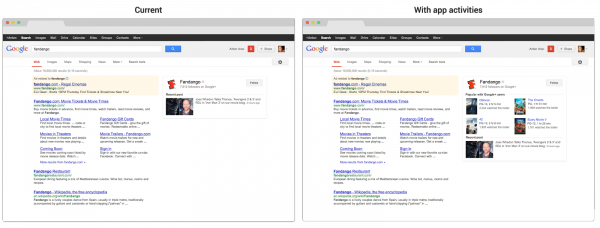Google+ Sign-In tempts developers with better search reach
Some days, I look at Google and my mind's eye sees Microsoft. This is one of them. Developers adopting Google+ Sign-In will get a big benefit in search results. The tie-in -- to monopoly search -- feels oh-so like Microsoft tactics to woo and keep developers on Windows during the 1980s and 90s. Yeah, I feel déjà vu right about now.
In February, the search and information giant added Google+ Sign-In as an option developers can include with their apps. In my news analysis then, I called the authentication service "bold and disruptive" and a "Facebook killer". The direct search tie-in makes my early sentiment a gross understatement. Google gives developers every reason to prefer its authentication mechanism, which hugely benefits the social network. The monopoly product is used to extend reach into an adjacent market. Say, didn't trustbusters on two continents prosecute Microsoft for tying together Windows and browser?
The potential benefits to developers are indisputable. "Soon, if you search for a site or app on Google.com (and that app has integrated with Google+ Sign-In app activities), you'll see popular and aggregate user activity to the right of search results", Seth Sternberg, director of Google+ product marketing, explains. "Searching for Fandango, for example, will show the top movies among Google users. And when you click on a movie, you’ll go directly to its page on Fandango".
Google will roll out the search changes over the next couple weeks. Among the first developers: Deezer, Fandango, Flixster, Slacker Radio, Songza, SoundCloud and TuneIn. Other developers adopting Google+ Sign-In will follow.
In many markets, Google search share exceeds 70 percent -- in some, reaches 90 percent. Google's U.S. share was 67.1 percent in March, according to comScore. However, when including all products "powered by Google", search share was 69.2 percent. The point: Google is the place to be, and developers can improve their visibility, if they support Google+ Sign-In.
Microsoft got in trouble for integrating Internet Explorer into Windows, a tactic government trustbusters viewed as leveraging monopoly to squash a rival platform. Microsoft developers had no choice. IE was there. Likewise, while agreed somewhat different circumstances, Google requires one thing for another. To get that extra search edge, developers must support Google+ Sign-In.
The approach personifies Google's core business and product strategy since Larry Page returned as CEO in April 2011. There is tighter product and service cross-integration everywhere, particularly search leveraged to boost adoption of other things. Look at how much the Google search page has changed, too -- the company's other services are far more visible.
Google+ is by far one of the biggest beneficiaries, and increasingly, as the company ties more other stuff to the social network. Chrome, Maps and YouTube are the other three major beneficiaries, but they're not alone. Drive, Gmail, News and Play are others.
The question to ask: Google and developers benefit, but do you? Please answer up in comments below.
Image Credit: Google

